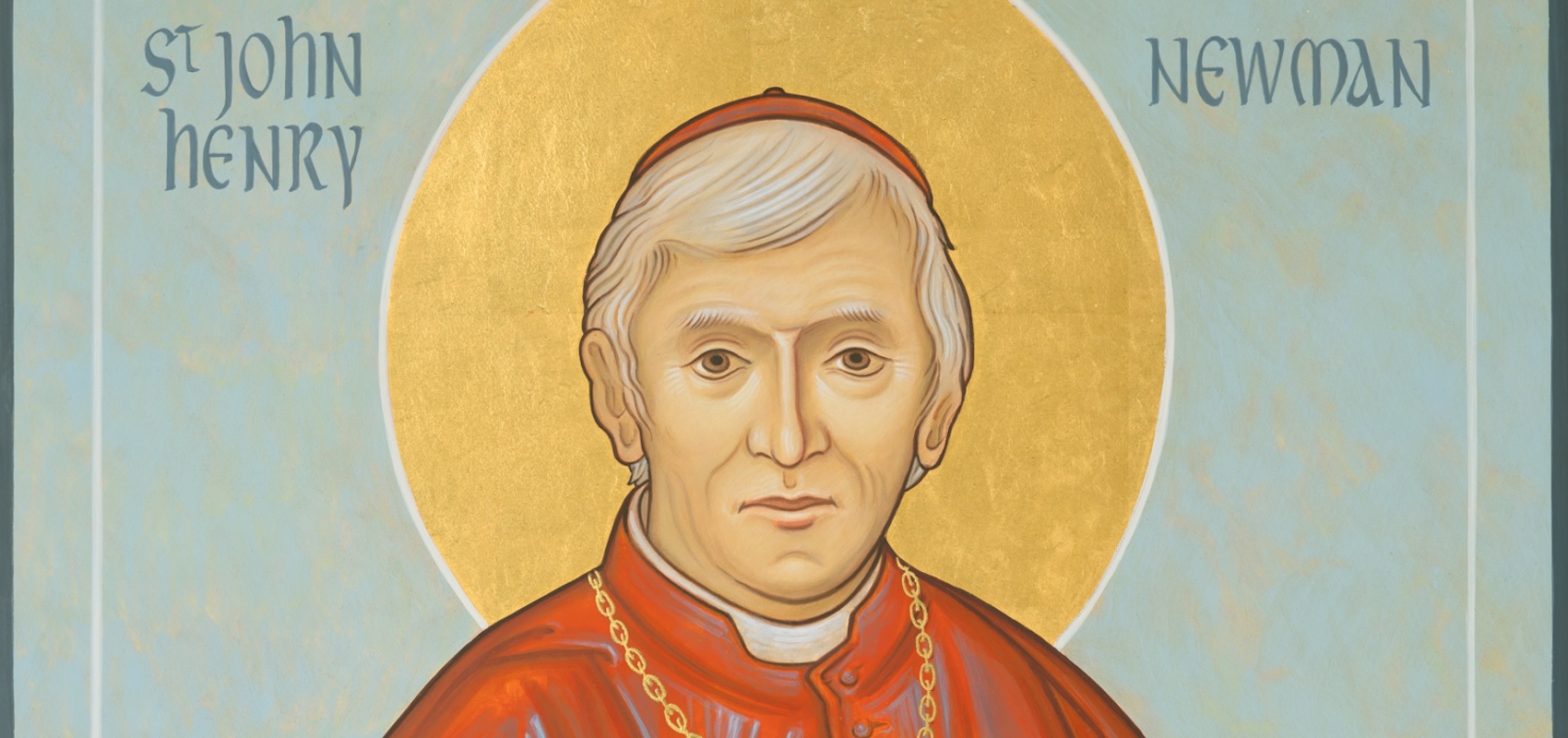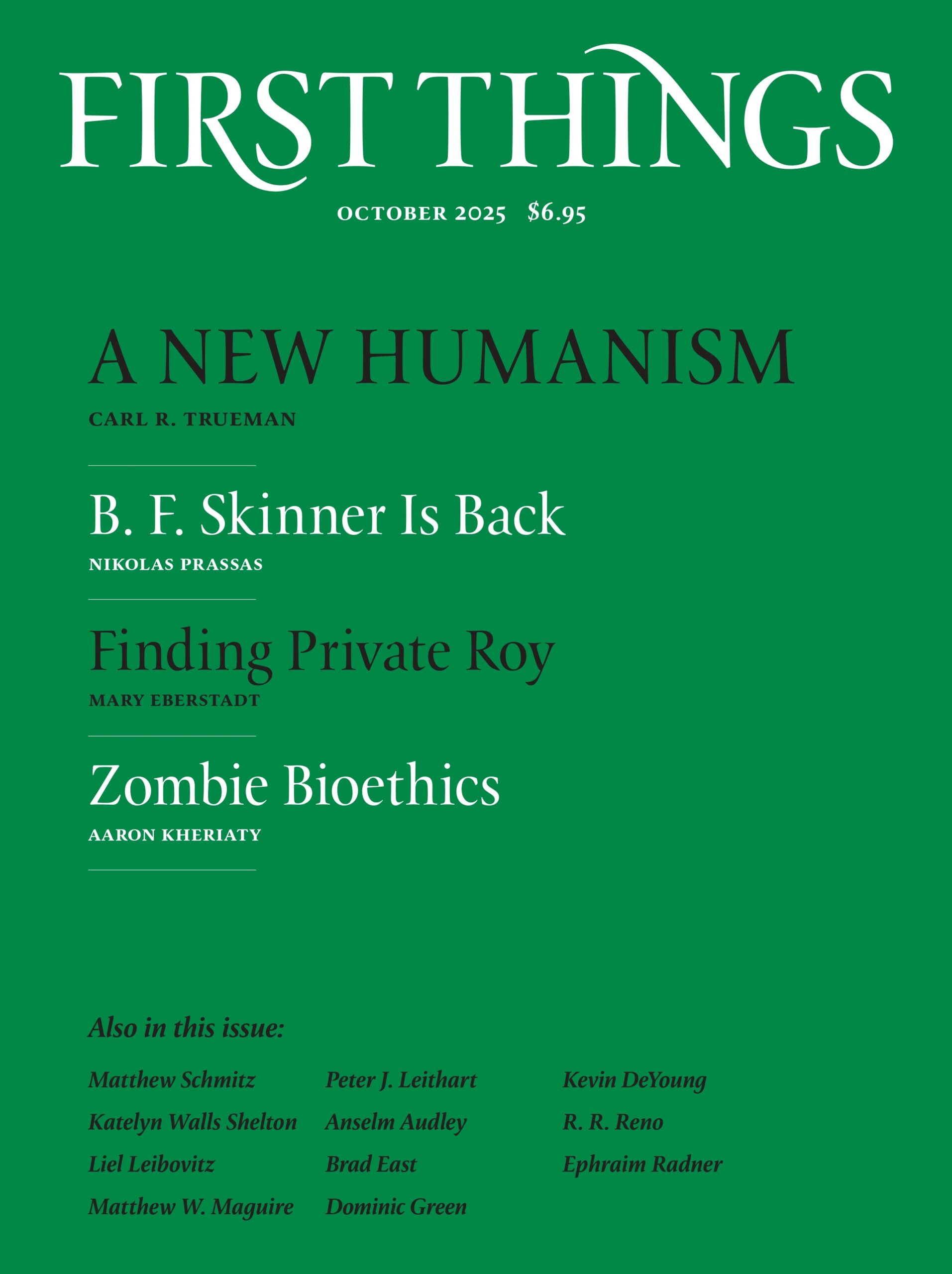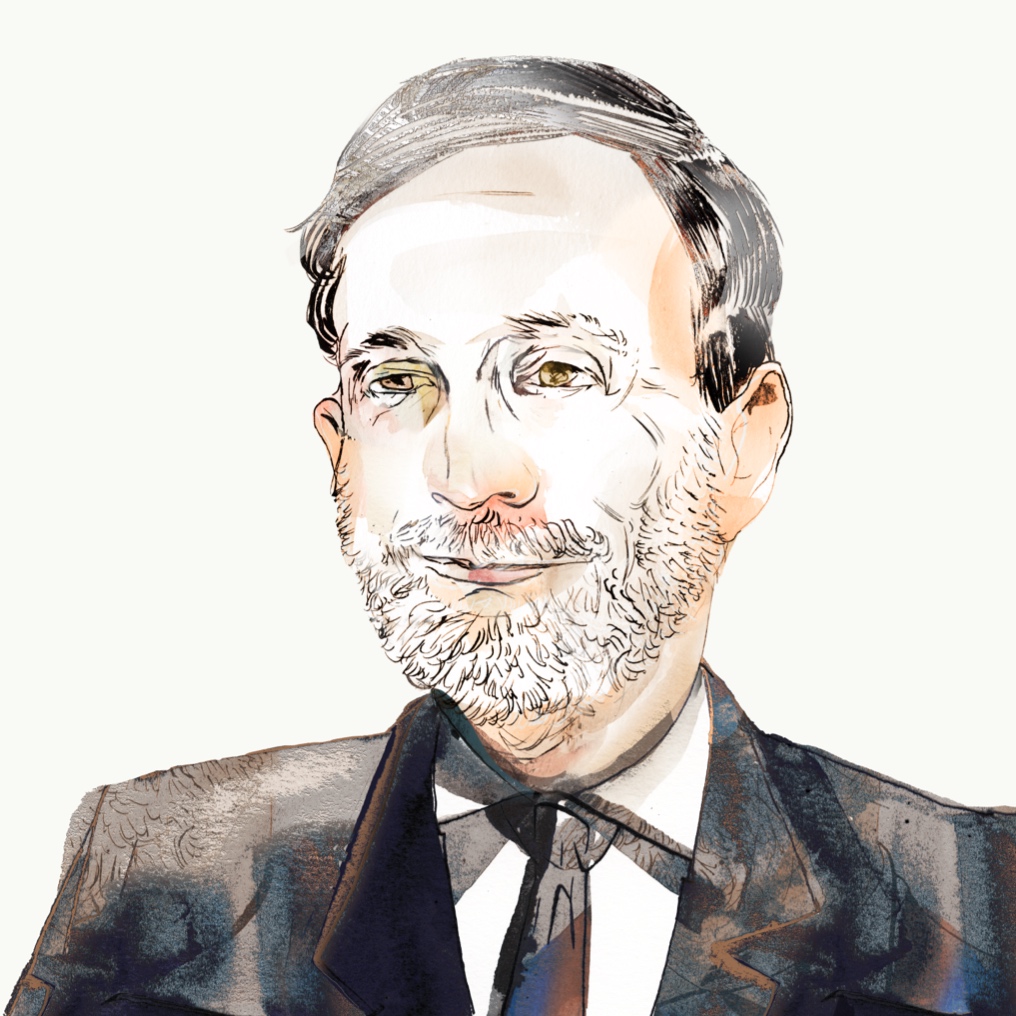
I first read St. John Henry Newman in 1985, when I was a graduate student at Yale. One of my teachers, Hans Frei, assigned Newman’s Apologia Pro Vita Sua in his famous introductory course on modern theology. On its face, the book would seem an odd assignment. The subject matter is Newman’s spiritual journey to Rome, which is documented in minute detail, often with reference to remote figures and obscure controversies.
But Frei knew what he was doing. Newman’s Apologia provides the testimony of a man who refused to accept the modern reframing of faith: that the latest academic and scientific and cultural authorities ought to have authority over God’s revelation; that men ought to be free to pick and choose among dogmas; that religion is a human phenomenon serving human needs; that it is wrong to ask men to believe what they do not understand; that inherited dogmas must answer to the need for “progress.” More than any other book assigned in Frei’s course, Newman’s framed with force and clarity the challenges we faced as young theologians.
During class discussion, Frei was at his twinkle-eyed best as he asked us what we thought of the famous “Note on Liberalism.” As Newman explains, liberalism adheres to the “anti-dogmatic principle,” which entails the subordination of the things of God to the judgments, needs, and whims of men. Frei knew that, as young students of theology, we, too, were engaged in a struggle to overcome liberalism, seeking to serve the authority of God rather than becoming spokesmen for the authority of men.
As I’ve noted, this broad and fundamental theme is not immediately evident. The subject matter of the Apologia is Newman’s struggle to remain loyal to the Church of England, a struggle he eventually lost. Moreover, in the Apologia, his most detailed reasons for crossing the Tiber are almost always negative, turning on many painful realizations that he was deceiving himself in his arguments for Anglicanism. Although I would eventually follow the same path, I don’t believe that the Apologia’s importance is restricted to struggling Anglicans. Newman’s most important lessons are for all modern men, believers and unbelievers alike.
It’s difficult to characterize Newman’s lasting insights. For the most part, Newman did not write about normal theological topics such as Christology or the doctrine of the Trinity. In almost every instance, Newman’s publications were occasional, which is to say, he wrote about the particular problems and difficulties of his time. For example, The Idea of a University is a polemic against the utilitarian mentality that was gaining power in the nineteenth century and has become entirely dominant in the twenty-first. Newman’s treatise on the development of doctrine answers questions raised by modern historical study, which documents changes so dramatic as to suggest discontinuity. His sermons on faith and reason and the Grammar of Assent address the bipolar disorder of the modern intellect, which swings back and forth between dogmatic rationalism and despairing skepticism. Nevertheless, I’ll take a stab at “the essential Newman.”
His central insight concerns the divine gift of concrete and substantive things, natural and supernatural. Their “weight” gives them staying power in the face of human pride and willfulness. And, furthermore, the “weight” of things, their plenitude of reality, casts a spell over us. For to be human is to seek to dwell in the light of what is real rather than prowling about in the shadowlands of ideas, theories, and syllogisms—“paper logic,” as Newman puts it.
Newman is rightly held up as a trustworthy guide to the difficult question of the relation of faith and reason. He understood the weakness of argument as compared to the power of things that have weight. “Deductions have no power of persuasion,” he writes in a famous passage:
The heart is commonly reached, not through reason, but through the imagination, by means of direct impressions, by the testimony of facts and events, by history, by description. Persons influence us, voices melt us, looks subdue us, deeds inflame us. Many a man will live and die upon a dogma: no man will be a martyr for a conclusion. A conclusion is but an opinion; it is not a thing which is. . . . No one, I say, will die for his own calculations; he dies for realities.
One of the powerful vacuums of our time is relativism, the notion that everything we believe arises from within—or, if one has taken a class in social theory, the doctrine that what we believe is “socially constructed.” We cannot argue our way out of this dead end. Only the force of reality can deliver us.
In a similar way, in matters of faith, Newman asserts what can be called the dogmatic principle. Faith is not a sentiment or speculative enterprise. It believes something specific, something taught and commanded. To this Newman adds a second, ecclesiastical principle: There exists an institution that does not simply convey these teachings and commandments but embodies and enacts them, in short, “a visible Church, with sacraments and rites which are channels of invisible grace.” The Church is primordial, a given fact, a “concrete representative of things invisible.”
At the end of his Apologia, Newman meditates on the Catholic Church’s claim to teach without error. (It is this material that might rightly take a leading place in a specifically Catholic apologetics.) In the face of modern man’s confidence that he possesses, for the first time in history, the tools with which to winnow and improve, sift and update, this claim marks the height of religious intransigence, which is why Catholicism then (and still) strikes many as dangerously medieval and authoritarian. Newman celebrates the “prerogative of infallibility.” It is to be cherished for “smiting hard and throwing back the immense energy of the aggressive, capricious, untrustworthy intellect.” The Church’s power to teach with authority, her daunting weightiness, rescues reason from its “suicidal excesses.”
Modernity has encouraged us to build an empire of reason. The upshot is now plain to see. Our society, imbued by liberalism and its anti-dogmatic animus, is characterized today by soulless technocratic management of utilities and a dispirited skepticism about transcendent truth. As a Doctor of the Church, Newman prescribes for our postmodern illness a strong dose of “weightiness.” If reason is to flourish, it must feel the force of divine instruction. “It thrives and is joyous, with tough elastic strength, under the terrible blows of the divinely-fashioned weapon, and it is never so much itself as when it has lately been overthrown.” What holds for reason also obtains for true freedom—and, indeed, for the entire project of sustaining a culture that is congenial to human flourishing.
Image by Jacques Bihin, licensed via Creative Commons. Image cropped.
The Church’s Answer to the World (ft. Carter Griffin)
In the latest installment of the ongoing interview series with contributing editor Mark Bauerlein, Fr. Carter Griffin…
Voyages to the End of the World
Francis Bacon dreamed of abolishing disease, natural disasters, and chance itself. He also dreamed of abolishing God.
Undermining the Church’s Public Witness
Bishop Thomas J. Paprocki recently wrote in these pages that the Archdiocese of Chicago’s plan to grant…


